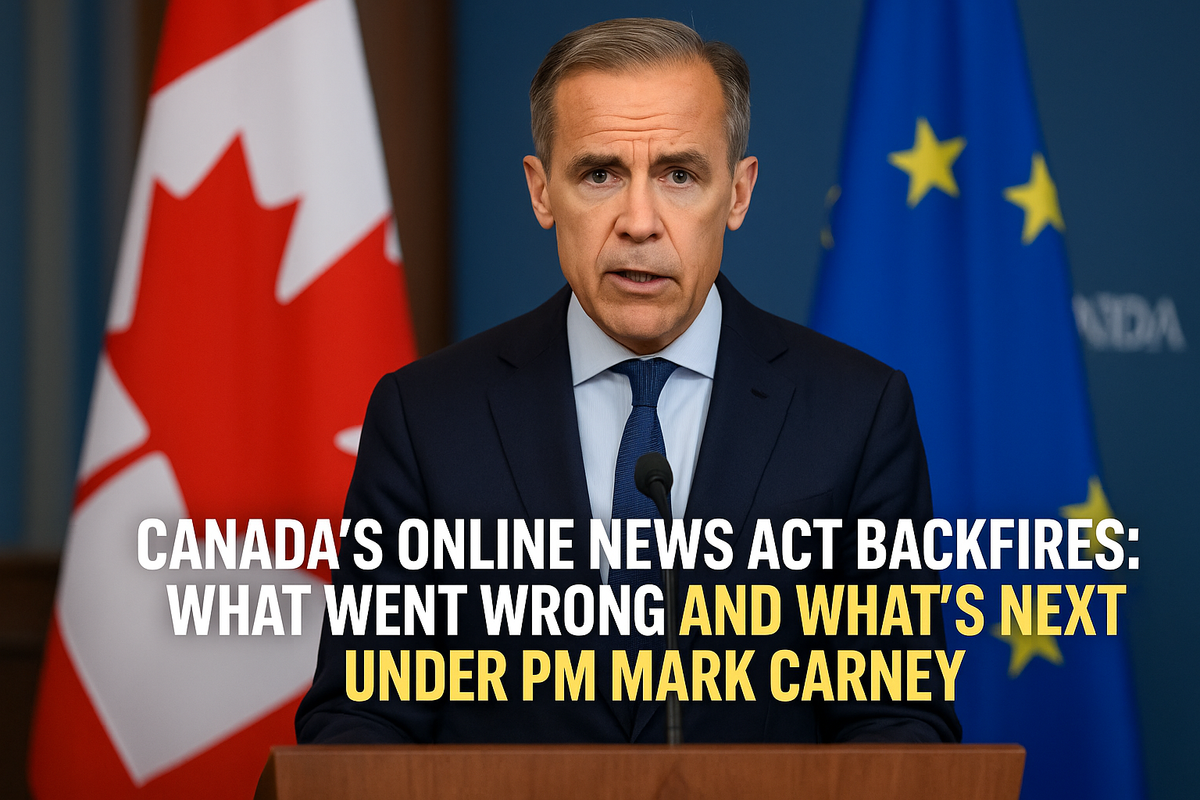
By Elke Porter | WBN News Vancouver | April 30, 2025
When former Heritage Minister Pablo Rodriguez introduced the Online News Act (Bill C-18) in 2022, it was billed as a way to level the playing field between Canadian news outlets and global tech giants like Google and Meta. The goal: to compel platforms to pay for Canadian news content they shared, directing funds back into a struggling media industry.
But three years later, the outcome is far from what Rodriguez or the Liberal government envisioned. Instead of embracing compensation deals, Meta blocked Canadian news on Facebook and Instagram entirely by August 2023. Google negotiated limited agreements, but the overall results were underwhelming. Many local newsrooms, especially smaller independents, were cut off from their main traffic sources and forced to shut down or slash operations.
News businesses must also “regularly employ two or more journalists in Canada” to be eligible under Bill C-18 because this criterion is aligned with the Income Tax Act’s Qualified Canadian Journalism Organization (QCJO) framework. The government feels requiring at least two journalists helps ensure a level of editorial oversight, which supports the maintenance of proper journalistic standards and practices. However, it does leave out the solopreneur blogger, who may still produce high-quality journalism but does not meet the staffing requirement.
Rodriguez, the architect of the bill, faced mounting criticism for the fallout and was shuffled out of cabinet in early 2024. Critics say he underestimated the tech giants' willingness to walk away and overestimated the bargaining power of Canadian media.
On top of this, according to a National Post article from 2022, small and start-up news outlets, including a coalition of 100 digital news outlets, have said they are concerned they are being left out of the legislation,
Fast forward to April 2025, and Canada has a new Prime Minister: Mark Carney, whose centrist coalition government includes both Liberal and moderate Conservative MPs. Carney has signaled a re-evaluation of the Online News Act, calling it “well-intentioned, but flawed.”
His government is expected to amend or repeal parts of the legislation, focusing instead on building partnerships between media outlets and platforms, and exploring new public funding models.
Ironically, many news outlets are now worse off than before Bill C-18 was passed in June 2023. The loss of social media distribution caused plummeting web traffic and ad revenue, accelerating the media’s decline rather than reversing it.
In contrast, the European Union has taken a firmer but more coordinated approach, using the Digital Markets Act (DMA) to regulate tech monopolies and enforce fair payments to publishers. Unlike Canada’s standoff, EU member states have largely succeeded in securing deals without content blocks.
For Canada, the Online News Act may serve as a cautionary tale—an example of how well-intentioned legislation can clash with the complexities of the digital landscape, ultimately leaving the very institutions it aimed to protect more exposed. With a new government in place, there is hope that newly (re)elected Prime Minister Mark Carney will revisit the legislation and consider adjustments that better support small and independent media outlets, ensuring a more inclusive and sustainable future for Canadian journalism.
#Online News Act #Canadian Media #Mark Carney #Tech Regulation #Meta News Ban #Digital Policy #News Bill C18 #Canadian Politics #WBN News Vancouver #Elke Porter
Connect with Elke at Westcoast German Media or on LinkedIn: Elke Porter or contact her on WhatsApp: +1 604 828 8788


